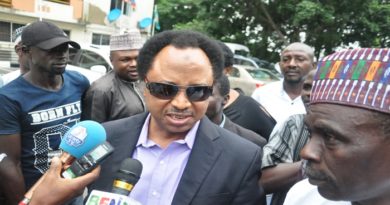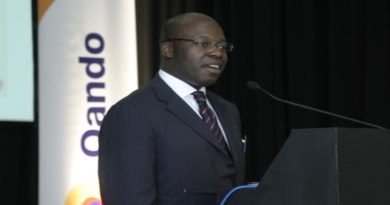Fuel price: Why Buhari compared Nigeria with Saudi Arabia -FG
The Federal Government says the comparison made by President Muhammadu Buhari on fuel prices between Nigeria, Saudi Arabia and other countries in his 2020 Independence Day national broadcast is justified.
Minister of Information and Culture, Alhaji Lai Mohammed, made the submission when he featured on a Radio Nigeria current affairs programme, “Radio Link’’ on Saturday in Abuja.
Buhari said in his Independence Day broadcast that “we sell petrol at N161 per litre when same is sold at N168 per litre in Saudi Arabia; N211 per litre in Egypt; N362 per litre in Ghana; N362 per litre in Chad, and N346 per litre in Niger Republic.
“It does not make sense for petrol to be cheaper in Nigeria than Saudi Arabia,’’
A cross-section of Nigerians, however, criticised the president for making such comparison without considering the minimum wage, standard of living and infrastructure in Saudi Arabia in particular.
Responding to the critics, the minister said there was nothing wrong in making such a comparison.
“Some people have said why should we compare ourselves to Saudi Arabia with better infrastructure and higher wages.
“Our answer to that is very simple. Saudi Arabia has 34 million people while Nigeria has 200 million people.
“Saudi Arabia produces 10 million barrels of crude oil per day, while Nigeria produces at its best, 2.1 million barrel per day.
“Their population is about one-sixth of Nigeria’s population and they are blessed with more resources.
“Therefore, they can afford to pay higher wages and build infrastructure.
“Our argument must be put in proper perspective.
“As we have said, whatever money we make from the subsidy removal, we will invest in infrastructure development’’ he said.
The minister commended organised labour for its understanding and patriotism in suspending its planned strike to protest the fuel price deregulation and the electricity tariff adjustment.
He noted that the suspension of the strike by the Nigeria Labour Congress, the Trade Union Congress and their affiliates averted a “national calamity’’.
Mohammed said after spending sleepless nights engaging with organised labour, the two congresses agreed with the government that the fuel deregulation was inevitable.
“The moment we lost as much as 60 per cent of our earnings and suffered a kind of shock in crude oil prices, we must deregulate.
“Between 2006 and 2019 we paid N10.413 trillion in fuel subsidies; an average of N743.8 billion per annum,’’ he lamented.
“The country right now cannot afford the subsidy regime,’’ the minister stressed. NAN




